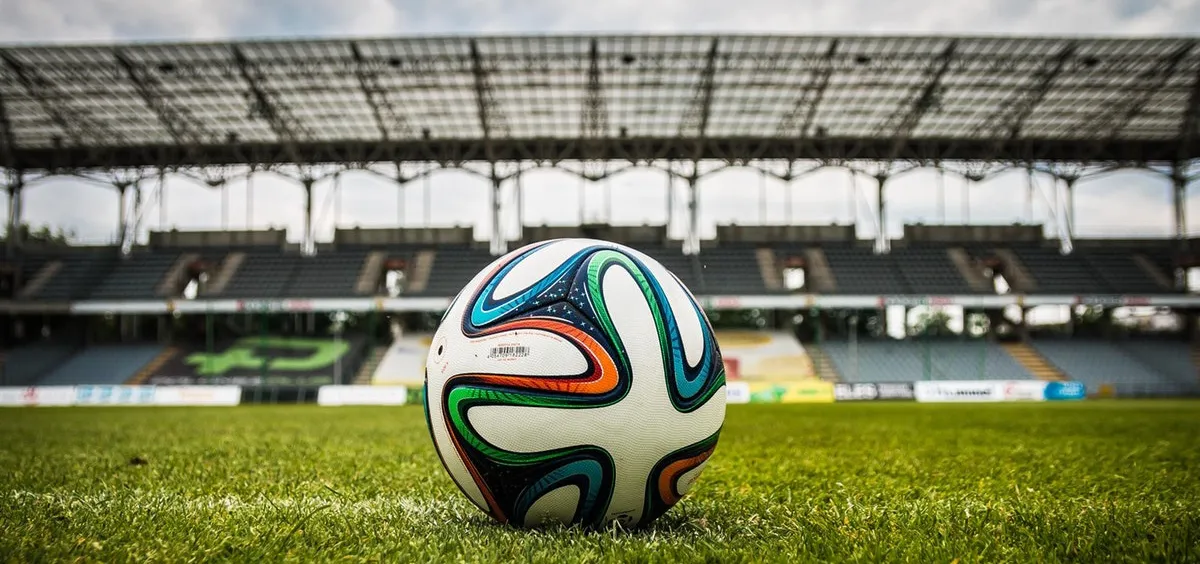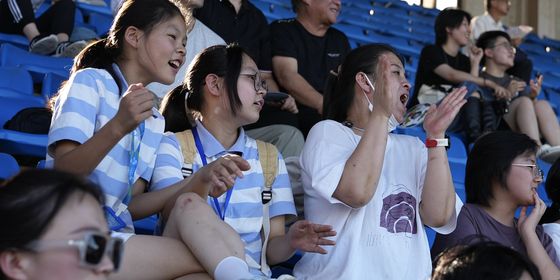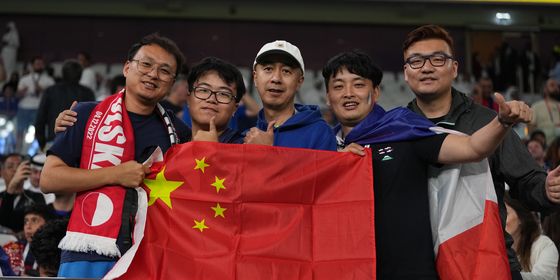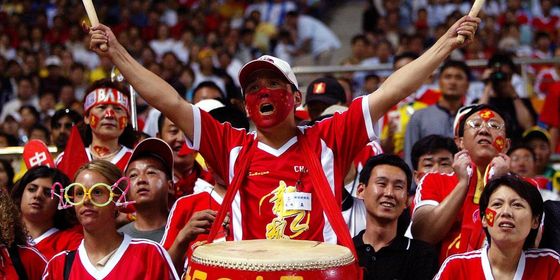Despite not actually playing in the 2018 World Cup, China has found plenty of ways to participate—and make money
China’s national team may not be actually in the 2018 FIFA World Cup, which continues until July 15, but that certainly doesn’t mean there isn’t a major Chinese presence at the Russian venues.
President Xi Jinping hopes China can become a football superpower by 2050—although experts warn that football involves a sporting skill that cannot be imposed by force of will—and ambitiously plans to host (and win) a World Cup in the following 15 years.
Meanwhile, Chinese business is heavily invested in the current tournament, from the food industry to payment systems and even real estate. A train carrying nearly 100,000 crayfish from Hubei province for Moscow used “cold chain logistics [to] keep the temperature inside the carriages permanently below minus 18 degrees Celsius” for the 17-day journey, the Deputy General Manager of Wuhan Asia Europe Logistics, Chen Wangming, told Xinhua.
The crustaceans will be cooked with a variety of new ingredients, such as cheese and cream, to satisfy the European palate. “World Cup plus beer and crayfish is a perfect combo,” Zhu Danpeng, an associate with the China Branding Research Institute, told Xinhua.
Chinese ice cream brands, such as Suibian (随变) and Mood for Green (绿色心情), are also enjoying the rights to sell ice cream and yogurt (冠益乳) at the sports event.
Brands such as Wanda, China’s largest commercial property developer, is one of Fifa’s seven official sponsors. TV and refrigerator maker Hisense, smartphone firm Vivo, and dairy manufacturer Mengniu are among also three of the tournament’s five official sponsors.
Chinese sponsors are filling a gap in Fifa’s sponsorship needs, as well as helping China achieve domestic priorities. “China wants to host the the World Cup, China wants to win the World Cup, and I speculate they also want a Chinese president of Fifa,” sports enterprise expert Brian Chadwick told the Guardian. Rescuing Fifa financially with these sponsorship deals will help the chances of achieving those dreams immeasurably.”
Western companies,“including Sony, Johnson & Johnson and BP’s Castrol, have pulled out of sponsoring the tournament” after Fifa was tainted by a vast corruption and bribery scandal, the newspaper reported. But Chinese firms (and McDonalds) appear to have no such qualms, seizing this opportunity to widely propagate its brands through a hugely popular global platform.
According to FIFA, approximately 60,000 Chinese fans are anticipated to travel to Russia throughout the sporting gala, purchasing more than 40,000 tickets—surpassing English and Spanish football fans whose national teams are actually in the mix (and doing well). In addition, 16 percent of hotels are booked by Chinese visitors. “Although the Chinese men’s national soccer team was not eligible for this year’s event, the love and passion for this sport are still there,” Zhu Hui, from Zhejiang province, told China Daily.Satisfying the needs of these Chinese visitors, Alipay, Alibaba’s digital payment, is now prevalent: Over 4,000 merchants have adopted this convenient digital platform, commonly used in supermarket chains and subway stations, reported Cankao Xiaoxi.












